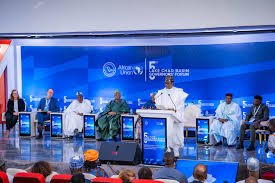As the world commemorates the 10th anniversary of the abduction of the Chibok Girls in Borno State, Nigeria, global rights group, Amnesty International (AI) has raised concerns over allegations of forced marriages between the rescued girls and “repentant” Boko Haram fighters.
The human rights organization has therefore demanded an immediate investigation into these claims, which suggest that the Borno State government organized these marriages. The Director of Amnesty International Nigeria, Isa Sanusi, alleged in a statement on Sunday, that over 1,700 children have been abducted since 2014, with 17 mass school abductions recorded in the past six years.
The statement, titled “Nigeria: Decade after Boko Haram attack on Chibok, 82 girls still in captivity,” highlights the ongoing crisis in the region. AI has also announced plans to publish a report next month documenting crimes and violations committed by Boko Haram and the Nigerian military against girls associated with, or perceived to be associated with, Boko Haram since the start of the conflict in North East Nigeria in 2013.
The report will detail the unique reintegration needs of these girls and their aspirations to rebuild their lives. The Explainer recalls In April 2014, 276 schoolgirls were abducted from a government secondary school in Chibok, a town in Borno State. While some of the girls managed to escape captivity on their own, others were later released following intense campaigning efforts by civil society organizations and negotiations by the government. However, 82 girls remain in captivity, and several children have been abducted in subsequent attacks.
Amnesty International has been documenting Boko Haram’s atrocities and targeting of schools since 2012. In May 2020, the organization published a report on the dire impact of the conflict in North East Nigeria on children. Sanusi expressed shock that the Nigerian authorities have not learned any lessons or taken effective measures to prevent attacks on schools in the 10 years since the Chibok school abduction.
The Nigerian authorities have been urged to redouble their efforts to ensure the safe release and return of not only the 82 Chibok girls abducted 10 years ago, but also all people held captive by gunmen across Nigeria.
AI has also called for a comprehensive and effective plan to protect schools and children and prioritize helping girls who escaped or were rescued from Boko Haram to rebuild their lives. The father of one of the women confirmed to Amnesty International that the forced marriages had taken place.
He expressed his fear of speaking out, stating, “I do not want a situation whereby if I speak, the government or Boko Haram will say we are conniving with others to expose issues to the public. I can speak on anonymity but will not still share everything.”
The Borno state government claims these Boko Haram fighters have undergone rehabilitation and been reintegrated into society under the government’s conflict recovery programme for repentant Boko Haram fighters.
However, Sanusi described the forced marriages as “appalling,” stating that they were an attempt to appease Boko Haram fighters with complete disregard for the rights and mental well-being of the girls involved.
Parents and relatives of the girls who remain in captivity have expressed feelings of abandonment by the government, citing the lack of information about attempts to ensure the safe release of their children from Boko Haram.
As the world marks the anniversary of these abductions, the Nigerian government is urged not to ignore the ongoing anguish of the parents whose daughters remain in captivity and ensure they are regularly briefed on efforts to ensure the safe release and return of their children.
























